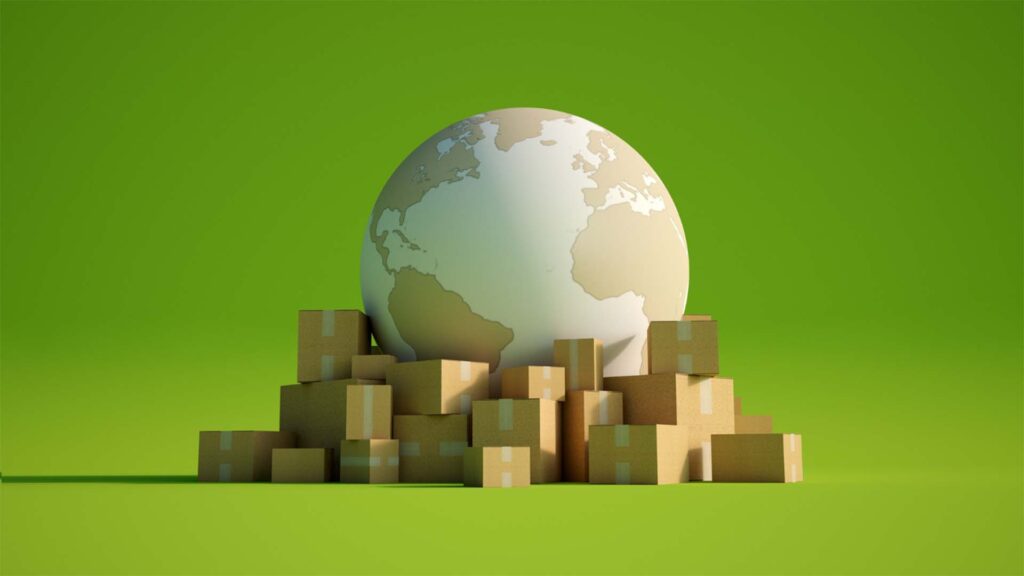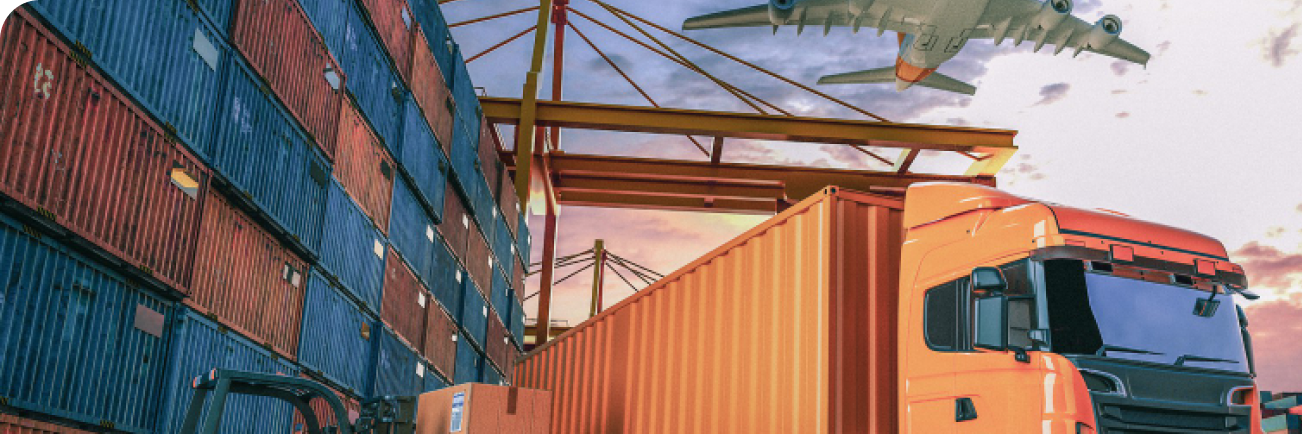Why is green logistics important for businesses and the environment? As the world embraces sustainability and environmental consciousness, industries across the globe are reevaluating their practices to reduce their ecological footprint. The logistics industry, which plays a significant role in global trade and transportation, is no exception. Green logistics, also known as sustainable logistics or eco-friendly logistics, is a concept that prioritizes environmental responsibility throughout the supply chain. In this blog, we will explore what green logistics entails, its importance, key strategies, and the benefits it brings to businesses and the environment.
Understanding Green Logistics
What is green logistics? Green or Sustainable logistics encompasses practices and strategies to minimize the environmental impact of logistics operations, including transportation, warehousing, packaging, and distribution. It involves adopting eco-friendly technologies, optimizing processes, and embracing sustainable practices to reduce greenhouse gas emissions, energy consumption, and waste generation.
The Need for Green Logistics
How do green or eco-friendly logistics help businesses reduce their environmental impact? The traditional logistics industry heavily relies on fossil fuels, leading to greenhouse gas emissions, air pollution, and other detrimental environmental effects. As concerns about climate change and environmental degradation escalate, there is a growing imperative for the logistics sector to adopt more sustainable practices. Eco-friendly logistics emerge as a solution to these challenges, promoting responsible resource management, waste reduction, and cleaner transportation alternatives.
The Importance of Green Logistics

Environmental Impact:
Green or Sustainable logistics significantly reduces the carbon footprint of supply chain activities, contributing to global efforts to combat climate change and protect the environment.
Regulatory Compliance:
As governments worldwide implement stricter environmental regulations, businesses embracing sustainable logistics ensure compliance and avoid potential penalties and reputational risks.
Cost Savings:
Efficient practices, such as route optimization and energy-saving measures, lead to fuel consumption, energy bills, and waste management cost reductions.
Enhanced Reputation:
Consumers and stakeholders increasingly value environmentally conscious companies. Adopting eco-friendly logistics practices enhances a company’s reputation and market competitiveness.
Key Strategies for Green Logistics

Sustainable Transportation:
Investing in energy-efficient vehicles, such as electric trucks or hybrid vehicles, can significantly reduce carbon emissions during transportation. Optimizing route planning and load consolidation also helps minimize fuel consumption and emissions while increasing overall efficiency.
Modal Shift:
Encouraging a modal shift from road transportation to more sustainable options like rail or maritime transport can substantially reduce emissions, especially for long-distance shipments.
Green Warehousing:
Implementing energy-efficient lighting, heating, and cooling systems and incorporating renewable energy sources can make warehouses more environmentally friendly. Employing eco-friendly packaging materials and recycling initiatives further enhance sustainability efforts.
Reverse Logistics and Circular Economy:
Embracing reverse logistics practices allows businesses to recover, refurbish, or recycle products and materials, reducing waste and extending the lifecycle of goods. This aligns with the principles of the circular economy, which aims to minimize waste and maximize resource efficiency.
Collaboration and Information Sharing:
Collaborating with suppliers, customers, and logistics partners fosters transparency and information sharing, facilitating better decision-making and environmentally responsible choices throughout the supply chain.
Challenges and Overcoming Obstacles

Implementing green logistics practices comes with its share of challenges and obstacles. Some of the common challenges businesses may face include:
Initial Investment:
Adopting eco-friendly technologies and making infrastructure changes can require a significant upfront investment, which might deter some companies from embracing sustainable logistics.
Limited Infrastructure:
In certain regions, the need for adequate infrastructure, such as charging stations for electric vehicles or access to alternative modes of transportation, can pose challenges for businesses aiming to transition to sustainable logistics.
Complex Supply Chains:
Supply chains can be complex and involve numerous stakeholders, making coordinating sustainable efforts across all parties challenging.
Resistance to Change:
Resistance to change, both internally and within the supply chain network, can hinder the implementation of green logistics practices.
However, businesses can overcome these challenges by taking a phased approach, seeking financial incentives for sustainable investments, and engaging in partnerships that support shared sustainability goals.
Benefits of Green Logistics
Improved Brand Image:
Embracing sustainable logistics aligns businesses with the growing environmental concerns of consumers and investors, enhancing their brand image and attracting environmentally conscious customers.
Cost Efficiency:
While initial investments may be required, long-term cost savings from reduced fuel consumption, energy bills, and waste management contribute to enhanced cost efficiency.
Regulatory Compliance:
With increasing environmental regulations, businesses adopting sustainable logistics practices ensure compliance and avoid potential fines or penalties.
Competitive Advantage:
Eco-friendly logistics sets businesses apart from competitors, positioning them as leaders in sustainability and fostering customer loyalty.
Resilience to Supply Chain Disruptions:
Sustainable practices often lead to more robust and resilient supply chains, better prepared to handle disruptions, such as extreme weather events or regulatory changes.
As the demand for eco-friendly practices grows, eco-friendly logistics will undoubtedly become a key differentiator for companies seeking to thrive in a rapidly changing business landscape. By fostering collaboration, transparency, and innovation throughout the supply chain, businesses can minimize their environmental impact and create a positive legacy for future generations. Embracing sustainable logistics is not just a choice for businesses but an opportunity to drive meaningful change and build a more sustainable and resilient global economy. Together, we can pave the way towards a greener and brighter future through green logistics.
Conclusion
In conclusion, Green logistics represents a transformative shift in the transportation and logistics industry, potentially impacting the environment, society, and business bottom lines. As the world faces environmental challenges, adopting sustainable practices in logistics becomes an ethical responsibility and a strategic advantage for businesses. By investing in energy-efficient transportation, eco-friendly warehousing, and embracing the principles of the circular economy, businesses can reduce their carbon footprint, contribute to climate action, and build a more sustainable future.
At Galaxy Freight, we understand the importance of sustainability in logistics. As a responsible logistics provider, we are committed to reducing our environmental impact and implementing green or eco-friendly logistics practices wherever possible. By choosing Galaxy Freight as your logistics partner, you can rest assured that your shipments are being handled with a focus on sustainability and environmental responsibility.
Join us in paving the way to a greener future for the logistics industry. Contact Galaxy Freight today to learn more about our eco-friendly logistics solutions and how we can help your business achieve its sustainability goals. Together, let’s build a more sustainable and prosperous future for generations.



